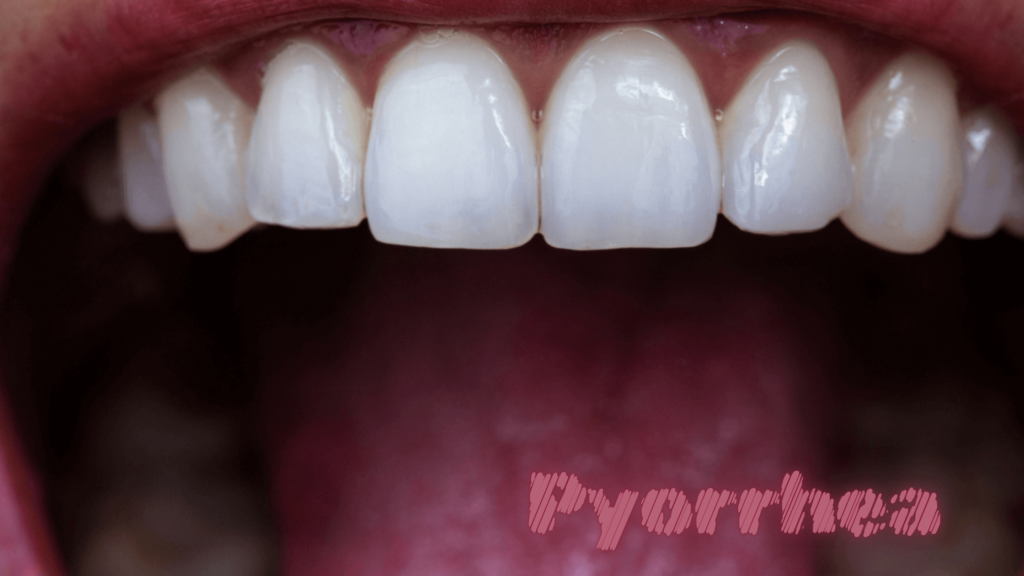🦷 Pyorrhea (Periodontitis)
Pyorrhea, now more commonly called periodontitis, is a serious gum infection that damages the soft tissue and can destroy the bone that supports your teeth. If untreated, it can lead to tooth loss and has been linked to other systemic conditions like heart disease and diabetes.
🧬 Cause
Pyorrhea is caused by poor oral hygiene, which leads to plaque buildup on the teeth. Over time:
- Plaque hardens into tartar (calculus).
- Bacteria in plaque and tartar cause inflammation of the gums (gingivitis).
- If gingivitis isn’t treated, it progresses to periodontitis.
⚠️ Symptoms
- Swollen, red, or bleeding gums
- Pus between teeth and gums
- Bad breath or bad taste in the mouth
- Receding gums
- Loose or shifting teeth
- Pain when chewing
- Formation of deep pockets between teeth and gums
🧪 Diagnosis
- Dental exam: Checking for gum inflammation, pocket depth
- Dental X-rays: To assess bone loss
- Periodontal probing: Measures depth of gum pockets
💊 Treatment
🪥 Non-Surgical Treatment
- Scaling and root planing (deep cleaning): Removes tartar from above and below the gum line
- Antibiotics: Mouth rinses or local application to reduce infection
🛠️ Surgical Treatment (for advanced cases)
- Flap surgery: Gums are lifted back to clean deep areas
- Bone grafts: Replace bone destroyed by periodontitis
- Soft tissue grafts: Reinforce receded gums
- Guided tissue regeneration: Promotes bone regrowth
🛡️ Prevention
- Brush twice daily with fluoride toothpaste
- Floss daily to remove plaque between teeth
- Regular dental check-ups and cleanings
- Avoid smoking, which increases risk
- Control diabetes and other health conditions
🧠 Complications if Untreated
- Tooth loss
- Gum abscesses
- Bone loss
- Increased risk of heart disease, stroke, and diabetes complications
✅ Key Facts
- Pyorrhea is a preventable and treatable condition
- Starts as gingivitis, then progresses to serious gum and bone disease
- Good oral hygiene and early dental care are essential
- Advanced cases may require periodontal surgery
